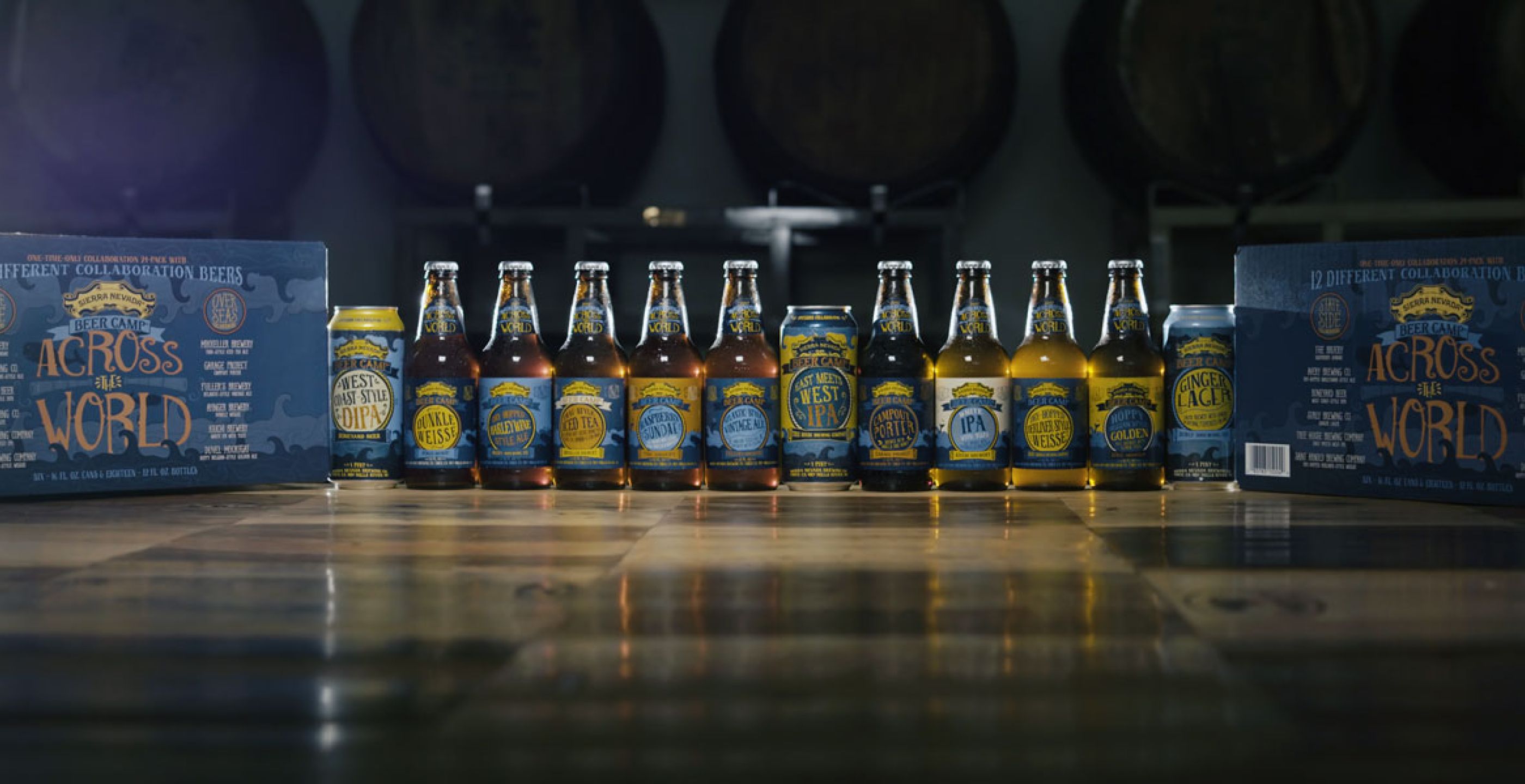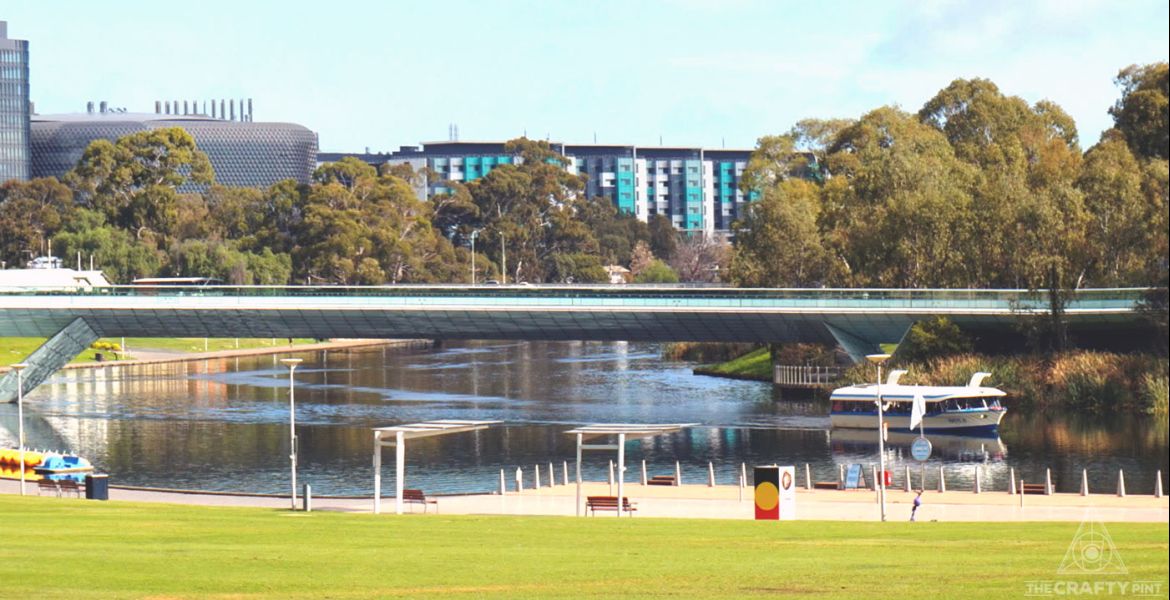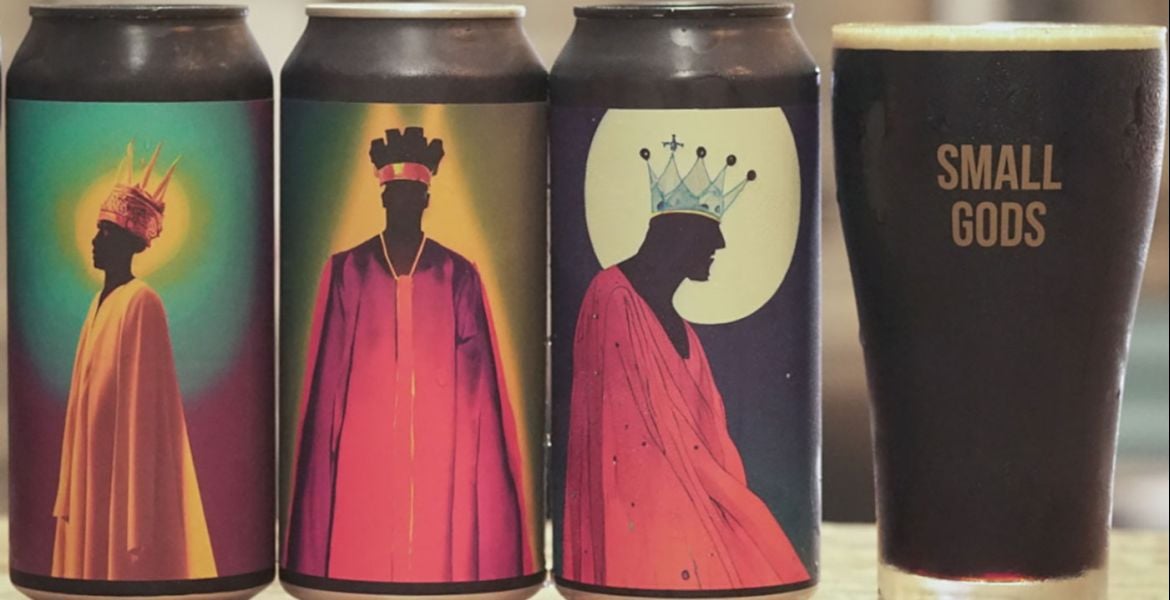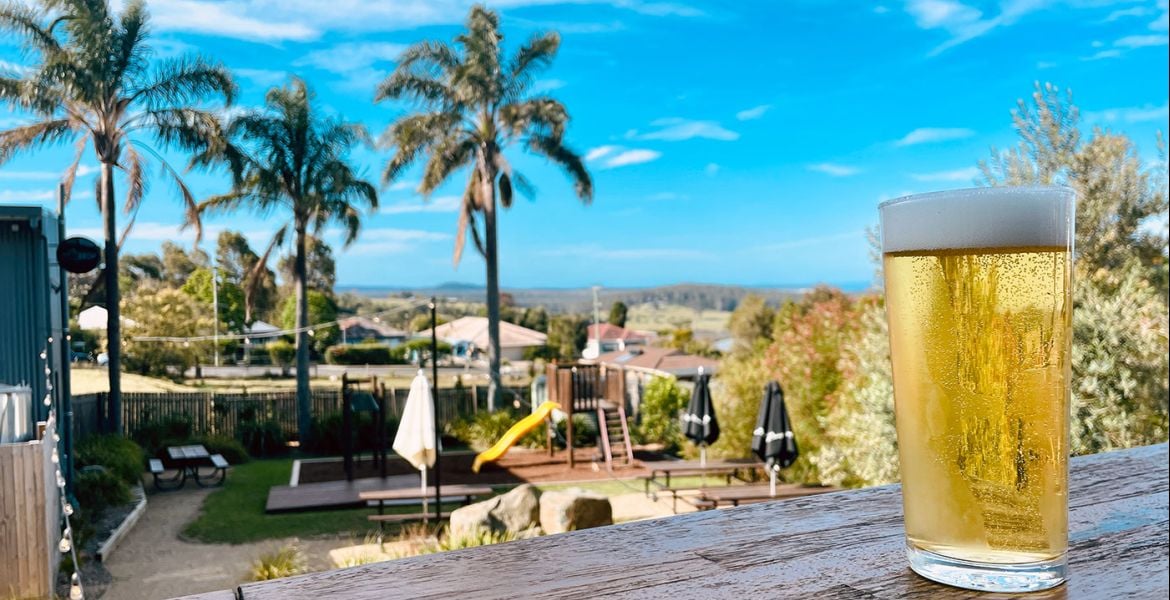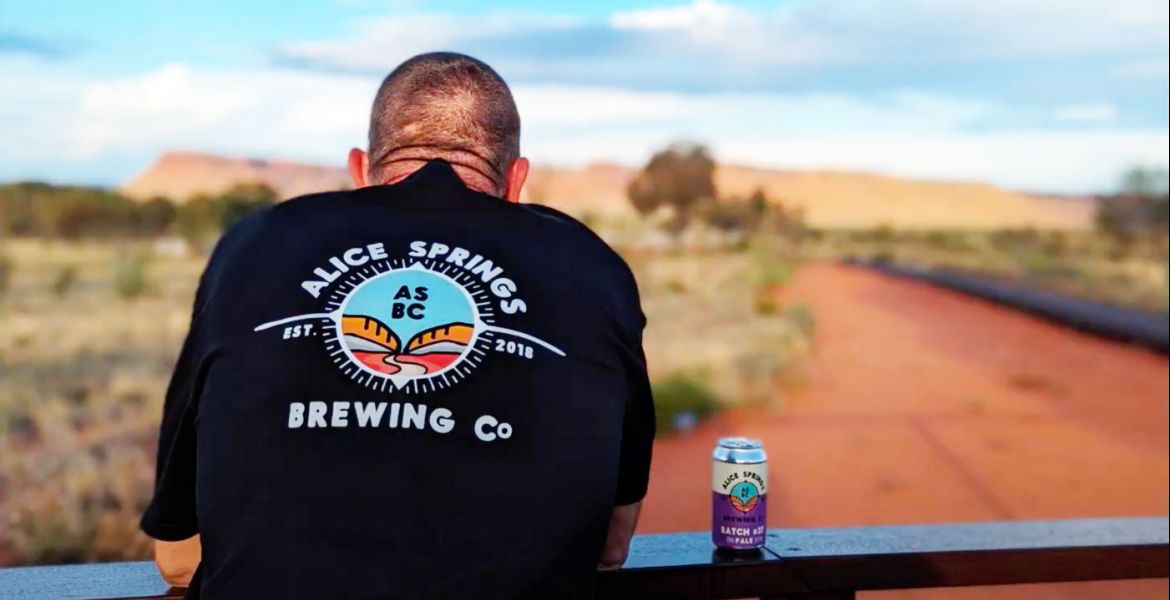New Zealand’s biggest beer festival Beervana is to host Sierra Nevada’s Beer Camp festival in a Southern Hemisphere exclusive. With fellow American big hitter Lagunitas, now part of the Heineken empire, also pouring in the country’s bars, there’s an ever-increasing presence f US breweries in the Australasian market.
Ahead of the follow up to our recent article looking at AB InBev’s entry into the Australian craft beer market visa Goose Island, Our Man In NZ looks at why more American brewers are targeting Kiwi drinkers, how they have already changed the country’s beer market, and why they may want to think carefully before deciding to send their beers over.
Beervana manager Beth Brash usually exudes excitement when talking about beer, but it takes a lot to get her genuinely pumped. You know, the kind of pumped that has you jumping around the room. Or would do if you weren’t feeling a bit dusty thanks to a few beers at GABS Auckland and subsequent happenings the night prior.
But excited is undoubtedly what Beth is, as she has just confirmed one of Beervana’s biggest coups: Sierra Nevada’s Beer Camp.
What started in 2008 as a collaborative gathering between the famous American brewery and fellow US brewers has morphed into a state-hopping beer festival that sees Sierra Nevada make 12 collaborative beers each year. In 2017, six of those beers were made with American breweries, while, for the first time, the other six were made with internationals: Fuller’s (England), Ayinger (Germany), Duvel (Belgium), Mikkeller (Denmark) and Wellington’s own Garage Project.
The dozen beers are being showcased at events across the US and now in Wellington, with Beer Camp’s first trip south of the equator. Staff from Sierra Nevada will be at Beervana, pouring all 12 beers at a dedicated bar, while Beth plans to invite all the other collaborating breweries to have a Beervana presence too. Better still (especially if you’re a brewer), all proceeds from Beer Camp beer sales will go towards setting up a scholarship to send a New Zealand brewer to the Craft Brewers Conference (CBC) in the States each year.
Beervana is the only time Beer Camp will be held outside the United States, hence Beth’s excitement at securing the deal. She says there are also plans afoot that would see Sierra Nevada shipping more of its range to New Zealand for events in the run up to Beervana."This is the first time the Beer Camp experience has travelled outside of the United States and I couldn't think of a better place to do it than Beervana in Wellington," says Sierra Nevada founder and owner Ken Grossman.
"As a collaborator in our Beer Camp Across the World 12-pack, Garage Project has been pouring at Beer Camp on Tour at our festivals this year, giving us a taste of New Zealand's craft beer capital. We're excited to bring Beer Camp to Garage Project’s home country to pour the 12 Beer Camp beers at Beervana in August."
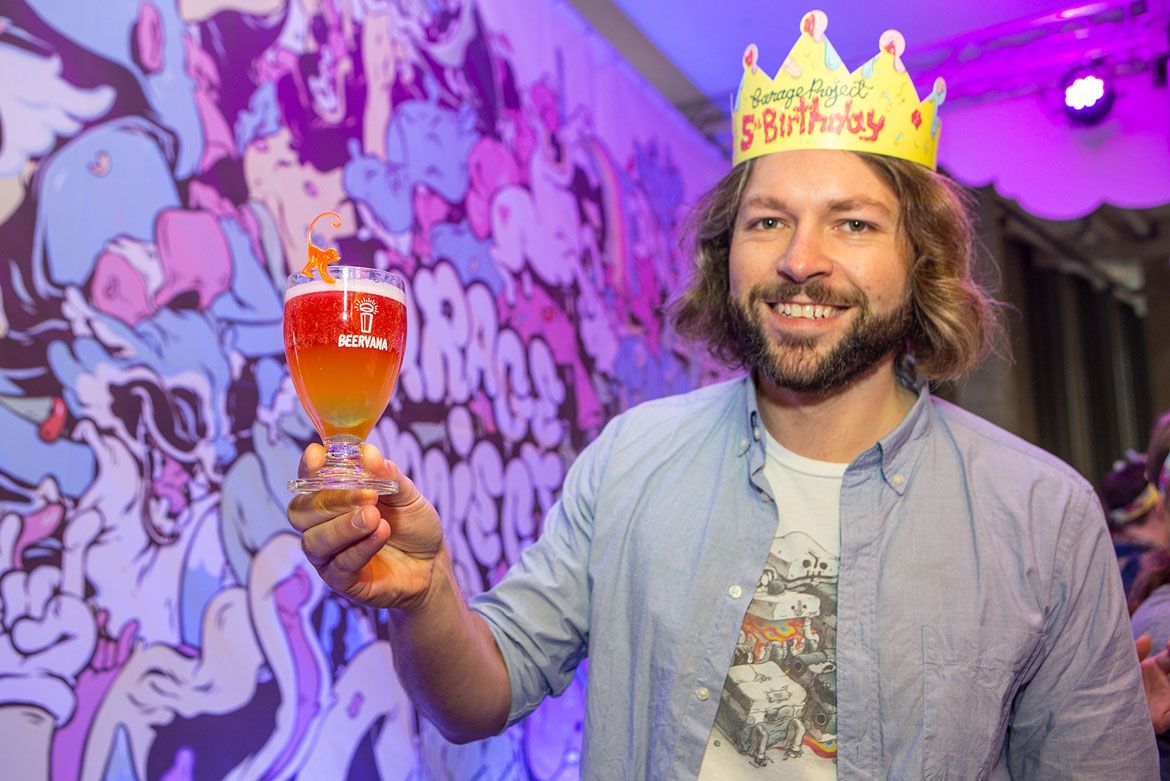
Sierra Nevada’s move comes hot on the heels of Heineken-owned Lagunitas beginning New Zealand distribution. While the Californian brewery is currently only sending its IPA into the country through Heineken stablemates DB, New Zealand’s beer writing doyen Geoff Griggs recently reported for Fairfax Media that more of their beers will follow as the brand gets established. It further adds to the number of American breweries importing to New Zealand, albeit with all but Lagunitas making it here via small importation companies or the grey market.
Beth (pictured below) says getting Sierra Nevada to Beervana is the festival’s next step in its goal of connecting the New Zealand beer scene with the rest of the world. For the past three years, the festival has brought Portland breweries to New Zealand, with local brewers, such as Behemoth (known as Chur in Australia) taking trips the other way to work on collaborations.
“It’s about making [our brewers] part of that global brewing community, and building up the local industry,” Beth says.
It’s something the NZ beer industry has already achieved to an extent, punching above its weight in terms of finding markets for brewing companies such as Epic, Yeastie Boys, 8 Wired and Tuatara overseas. When attending the CBC in Washington this April, Beth says she met the owners of breweries like Almanac, Russian River and The Bruery and found they were excited about what New Zealand brewers were doing and about opportunities in the market.
“Everyone wants to go [to New Zealand],” she says. “It’s on everyone’s radar.”
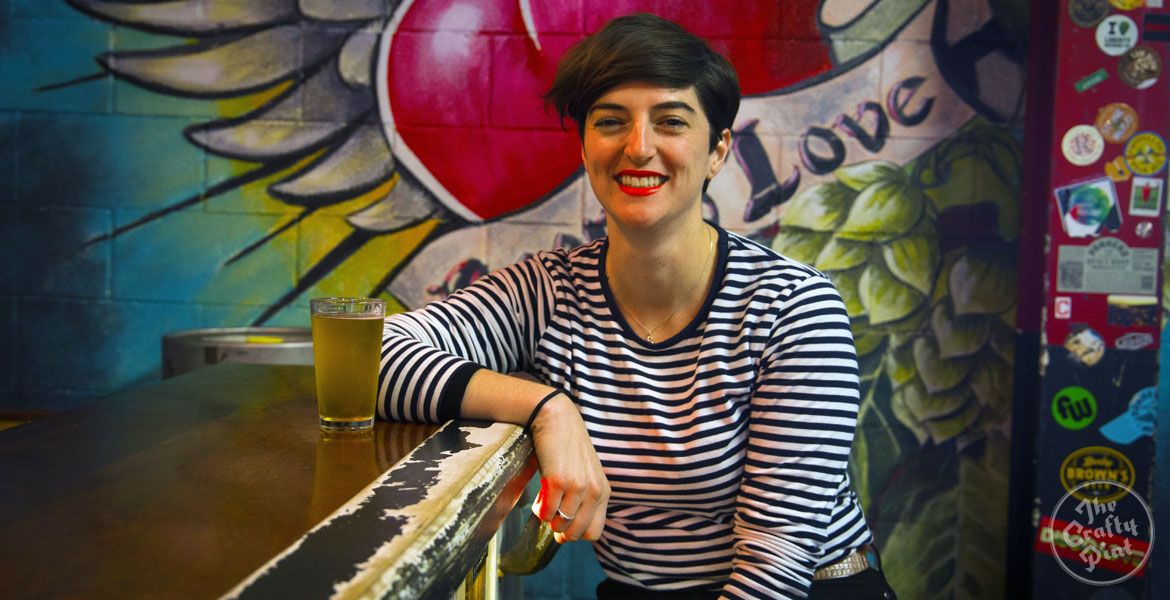
That said, there will be no Portland presence at Beervana this year; Beth says she felt that partnership had run its course.
“Last year, we had five brewers come down and run an interactive stand,” she says. “But we have looked at the rest of the world and said, ‘There are so many other rockstars out there’. We want to grow that international aspect of Beervana and give people a chance to try some of those rockstars from around the world as they should be.”
“As they should be” – a shorthand often touted by beer nerds to explain how breweries want their beer exported: chilled the whole way, from brewery to bar to glass – and with the brewery in question’s blessing.
That’s something that’s not always the case in New Zealand; the country is awash American beers, despite many US brewers having no distributor here. It means the beers arrive via other means, with these grey market beers often landing in poor condition, inevitably disappointing drinkers expecting a beer experience that will live up to the hype they’ve read online – the beer world equivalent of unwrapping a present the size of a car on Christmas morning, only to discover a box containing nothing but a lump of coal.
It is an issue Beth to which can relate.
“Sometimes we can get their beer, but they don’t really control the export,” she says of beer arriving from international brewers. “We don’t know what condition it comes in.
“New Zealanders know so much about these brewers from around the world, but we don’t get a chance to taste the stuff [in its best condition].”
When it comes to bringing international beer to New Zealand, no one has done more than Dominic Kelly, the founder of craft beer bar Hashigo Zake and beer distribution business Beer Without Borders. Since starting out eight years ago, he’s taken a firm stand against grey market beers, which makes his initial discovery of such beers rather ironic.
“I just had a fascination with American beer from the tiny amounts that made it through the - dare I say it? - grey market, and also from visiting there,” he says. “There was also really good American beer in Japan.”
He took a punt when opening Hashigo Zake to bring in American beer, first by getting hold of Flying Dog and Rogue from shipments heading to Australia. But it was not until he secured a 2010 shipment of Californian beer direct from breweries such as Green Flash, Coronado and Ballast Point that things took off. Since then, he and his associated companies have brought in dozens of different beers from the US, including Maui (Hawaii), Rogue (Oregon) and Almanac (California).
“We only make progress [with a brewery] if we’ve had an introduction,” Dominic explains. “If we just approach breweries out of the blue – I have tried it a few times – some maintain dialogue, but some just don’t return calls. Generally, if someone they know and trust puts an idea into their head, they’re a bit more willing.”
Dominic (pictured below) sees the recent influx of American beer into New Zealand and Australia as a reaction to a slowing in the rate of craft beer’s growth in the US. But, he says, there are breweries that have bucked the trend: Modern Times started exporting to New Zealand two years after opening in 2013, when there was still growth to be found in its home market.
As more brands prepare to head in our direction, Dominic warns it’s not easy for international brewers to become established, with craft beer viewed as a luxury product by the time it gets to New Zealand.
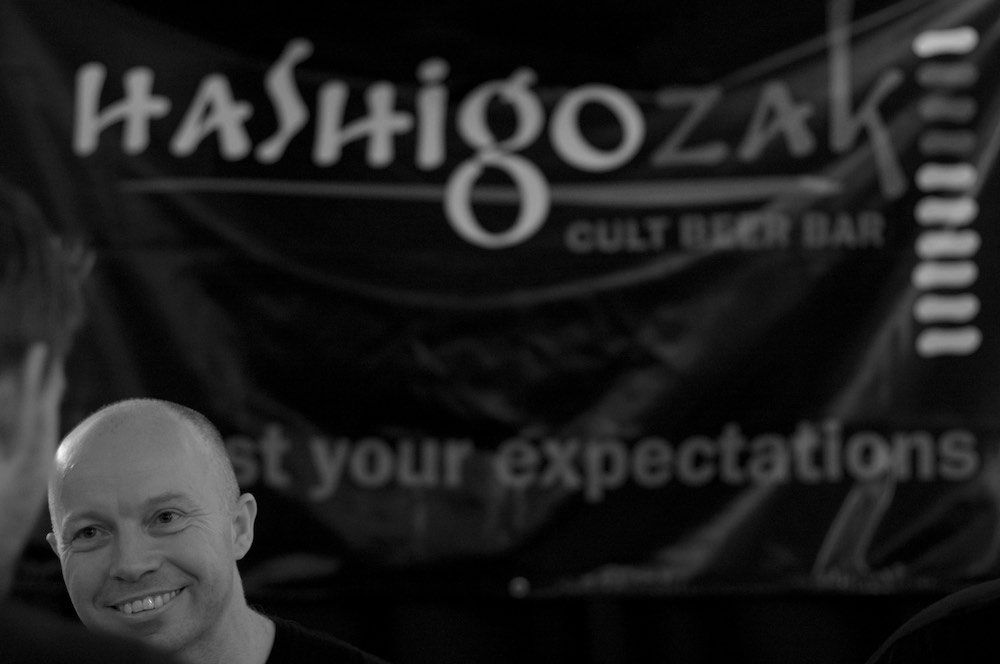
“People are intrinsically parochial about beer,” he says. “It’s the reverse of the green bottle lager market. That’s a single worldwide market made up of these mega-brands. With reasonably astute lovers of good beer, selling [an imported beer] to them once is much easier than selling to them a second time.”
He also believes American breweries need to make adjustments if they want to make export markets as profitable as home ones. Dominic says the biggest mistake is breweries wanting to sell only the core range. It’s a problem both Sam Adams and BrewDog made when they signed up to be distributed by Asahi-owned Independent Liquor. Beer ended up going increasingly stale on shelves, to the point where Sam Adams six-packs were being sold below the price of some New Zealand macro brands.
BrewDog has since moved on to a different importer bringing in a wide range of products. Dominic says this is key, giving the example of one brewery, who he doesn’t name, that had a firm “80 per cent core range, 20 per cent specialties” rule for some time but started selling far more beer once that balance was tilted in favour of more specialties.
“We still want the everyday beers, but smaller quantities,” Dominic explains. “The fact is, if you are an American brewery selling to us, the smaller minimum order quantity we can get, the more you will sell.”
But who is buying it? Dominic says New Zealand brewers are some of the biggest customers, and it’s showing in what they’re making.
“We see beers being made here that start out as ideas from what we have imported. It was going to happen anyway, but the whole shift to hop forward pale beers – we helped that.”
It is a double-edged sword, though, as local brewers can make an American-style IPA and sell it at a cheaper price thanks to lower shipping costs. Dominic says he doesn’t see American breweries nudging Kiwis off their own turf but does expect more to send beer to Australasia – and envisages a big push into Australia with its larger population.
The most fascinating, and possibly worrying, case study for Dominic is Lagunitas. Lagunitas being wildly successful through DB could lead other breweries to think they need to import through Lion or DB. Dominic describes it as “the nightmare scenario” – and not just because it could make it harder for him to get new breweries on board with Beer Without Borders.
His fear goes back to a long-running issue for brewers and drinkers: tied taps. DB now has Lagunitas and Tuatara as craft brands on its books, while Lion has Emerson’s, Panhead and Little Creatures among its brands. Having all those craft beer brands could make it much easier to tie up bars, denying space for independent craft brewers.
“[Lagunitas founder] Tony Magee’s rationale to justify selling to Heineken was ‘We need Heineken’s money for our mission of bringing American beer to the world’,” says Dominic. However, depending on what scale you want to export on, you don’t need Heineken’s money. But if want to invest in a massive new brewery, then, yeah, they might need a lot of capital.”
You can read more of Jono's articles on the New Zealand beer scene here and other NZ stories on Crafty here.
Keep up with Jono elsewhere on the internet on Twitter, or his beer blog From Drinker to Brewer, which you can also follow on Facebook.
Disclaimer: Jono runs tastings for Beer Without Borders in Palmerston North.
Photo of Dominic Kelly kindly supplied by Jed Soanes of The Beer Project.




